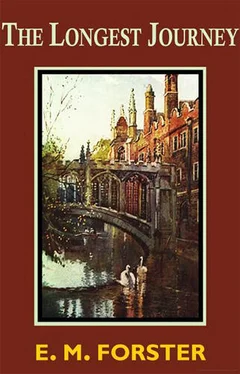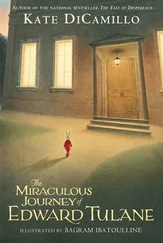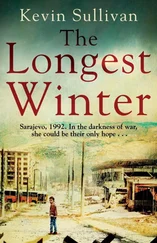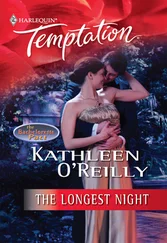Edward Forster - The Longest Journey
Здесь есть возможность читать онлайн «Edward Forster - The Longest Journey» весь текст электронной книги совершенно бесплатно (целиком полную версию без сокращений). В некоторых случаях можно слушать аудио, скачать через торрент в формате fb2 и присутствует краткое содержание. Жанр: Классическая проза, на английском языке. Описание произведения, (предисловие) а так же отзывы посетителей доступны на портале библиотеки ЛибКат.
- Название:The Longest Journey
- Автор:
- Жанр:
- Год:неизвестен
- ISBN:нет данных
- Рейтинг книги:5 / 5. Голосов: 1
-
Избранное:Добавить в избранное
- Отзывы:
-
Ваша оценка:
- 100
- 1
- 2
- 3
- 4
- 5
The Longest Journey: краткое содержание, описание и аннотация
Предлагаем к чтению аннотацию, описание, краткое содержание или предисловие (зависит от того, что написал сам автор книги «The Longest Journey»). Если вы не нашли необходимую информацию о книге — напишите в комментариях, мы постараемся отыскать её.
The Longest Journey — читать онлайн бесплатно полную книгу (весь текст) целиком
Ниже представлен текст книги, разбитый по страницам. Система сохранения места последней прочитанной страницы, позволяет с удобством читать онлайн бесплатно книгу «The Longest Journey», без необходимости каждый раз заново искать на чём Вы остановились. Поставьте закладку, и сможете в любой момент перейти на страницу, на которой закончили чтение.
Интервал:
Закладка:
Cadover was inherited by his widow. She tried to sell it; she tried to let it; but she asked too much, and as it was neither a pretty place nor fertile, it was left on her hands. With many a groan she settled down to banishment. Wiltshire people, she declared, were the stupidest in England. She told them so to their faces, which made them no brighter. And their county was worthy of them: no distinction in it—no style—simply land.
But her wrath passed, or remained only as a graceful fretfulness. She made the house comfortable, and abandoned the farm to Mr. Wilbraham. With a good deal of care she selected a small circle of acquaintances, and had them to stop in the summer months. In the winter she would go to town and frequent the salons of the literary. As her lameness increased she moved about less, and at the time of her nephew's visit seldom left the place that had been forced upon her as a home. Just now she was busy. A prominent politician had quoted her husband. The young generation asked, "Who is this Mr. Failing?" and the publishers wrote, "Now is the time." She was collecting some essays and penning an introductory memoir.
Rickie admired his aunt, but did not care for her. She reminded him too much of his father. She had the same affliction, the same heartlessness, the same habit of taking life with a laugh—as if life is a pill! He also felt that she had neglected him. He would not have asked much: as for "prospects," they never entered his head, but she was his only near relative, and a little kindness and hospitality during the lonely years would have made incalculable difference. Now that he was happier and could bring her Agnes, she had asked him to stop at once. The sun as it rose next morning spoke to him of a new life. He too had a purpose and a value in the world at last. Leaning out of the window, he gazed at the earth washed clean and heard through the pure air the distant noises of the farm.
But that day nothing was to remain divine but the weather. His aunt, for reasons of her own, decreed that he should go for a ride with the Wonham boy. They were to look at Old Sarum, proceed thence to Salisbury, lunch there, see the sights, call on a certain canon for tea, and return to Cadover in the evening. The arrangement suited no one. He did not want to ride, but to be with Agnes; nor did Agnes want to be parted from him, nor Stephen to go with him. But the clearer the wishes of her guests became, the more determined was Mrs. Failing to disregard them. She smoothed away every difficulty, she converted every objection into a reason, and she ordered the horses for half-past nine.
"It is a bore," he grumbled as he sat in their little private sitting-room, breaking his finger-nails upon the coachman's gaiters. "I can't ride. I shall fall off. We should have been so happy here. It's just like Aunt Emily. Can't you imagine her saying afterwards, 'Lovers are absurd. I made a point of keeping them apart,' and then everybody laughing."
With a pretty foretaste of the future, Agnes knelt before him and did the gaiters up. "Who is this Mr. Wonham, by the bye?"
"I don't know. Some connection of Mr. Failing's, I think."
"Does he live here?"
"He used to be at school or something. He seems to have grown into a tiresome person."
"I suppose that Mrs. Failing has adopted him."
"I suppose so. I believe that she has been quite kind. I do hope she'll be kind to you this morning. I hate leaving you with her."
"Why, you say she likes me."
"Yes, but that wouldn't prevent—you see she doesn't mind what she says or what she repeats if it amuses her. If she thought it really funny, for instance, to break off our engagement, she'd try."
"Dear boy, what a frightful remark! But it would be funnier for us to see her trying. Whatever could she do?"
He kissed the hands that were still busy with the fastenings. "Nothing. I can't see one thing. We simply lie open to each other, you and I. There isn't one new corner in either of us that she could reveal. It's only that I always have in this house the most awful feeling of insecurity."
"Why?"
"If any one says or does a foolish thing it's always here. All the family breezes have started here. It's a kind of focus for aimed and aimless scandal. You know, when my father and mother had their special quarrel, my aunt was mixed up in it,—I never knew how or how much—but you may be sure she didn't calm things down, unless she found things more entertaining calm."
"Rickie! Rickie!" cried the lady from the garden, "Your riding-master's impatient."
"We really oughtn't to talk of her like this here," whispered Agnes. "It's a horrible habit."
"The habit of the country, Agnes. Ugh, this gossip!" Suddenly he flung his arms over her. "Dear—dear—let's beware of I don't know what—of nothing at all perhaps."
"Oh, buck up!" yelled the irritable Stephen. "Which am I to shorten—left stirrup or right?"
"Left!" shouted Agnes.
"How many holes?"
They hurried down. On the way she said: "I'm glad of the warning. Now I'm prepared. Your aunt will get nothing out of me."
Her betrothed tried to mount with the wrong foot according to his invariable custom. She also had to pick up his whip. At last they started, the boy showing off pretty consistently, and she was left alone with her hostess.
"Dido is quiet as a lamb," said Mrs. Failing, "and Stephen is a good fielder. What a blessing it is to have cleared out the men. What shall you and I do this heavenly morning?"
"I'm game for anything."
"Have you quite unpacked?"
"Yes."
"Any letters to write?" No.
"Then let's go to my arbour. No, we won't. It gets the morning sun, and it'll be too hot today." Already she regretted clearing out the men. On such a morning she would have liked to drive, but her third animal had gone lame. She feared, too, that Miss Pembroke was going to bore her. However, they did go to the arbour. In languid tones she pointed out the various objects of interest.
"There's the Cad, which goes into the something, which goes into the Avon. Cadbury Rings opposite, Cadchurch to the extreme left: you can't see it. You were there last night. It is famous for the drunken parson and the railway-station. Then Cad Dauntsey. Then Cadford, that side of the stream, connected with Cadover, this. Observe the fertility of the Wiltshire mind."
"A terrible lot of Cads," said Agnes brightly.
Mrs. Failing divided her guests into those who made this joke and those who did not. The latter class was very small.
"The vicar of Cadford—not the nice drunkard—declares the name is really 'Chadford,' and he worried on till I put up a window to St. Chad in our church. His Cambridge wife pronounces it 'Hyadford.' I could smack them both. How do you like Podge? Ah! you jump; I meant you to. How do you like Podge Wonham?"
"Very nice," said Agnes, laughing.
"Nice! He is a hero."
There was a long interval of silence. Each lady looked, without much interest, at the view. Mrs. Failing's attitude towards Nature was severely aesthetic—an attitude more sterile than the severely practical. She applied the test of beauty to shadow and odour and sound; they never filled her with reverence or excitement; she never knew them as a resistless trinity that may intoxicate the worshipper with joy. If she liked a ploughed field, it was only as a spot of colour—not also as a hint of the endless strength of the earth. And today she could approve of one cloud, but object to its fellow. As for Miss Pembroke, she was not approving or objecting at all. "A hero?" she queried, when the interval had passed. Her voice was indifferent, as if she had been thinking of other things.
"A hero? Yes. Didn't you notice how heroic he was?"
"I don't think I did."
"Not at dinner? Ah, Agnes, always look out for heroism at dinner. It is their great time. They live up to the stiffness of their shirt fronts. Do you mean to say that you never noticed how he set down Rickie?"
Читать дальшеИнтервал:
Закладка:
Похожие книги на «The Longest Journey»
Представляем Вашему вниманию похожие книги на «The Longest Journey» списком для выбора. Мы отобрали схожую по названию и смыслу литературу в надежде предоставить читателям больше вариантов отыскать новые, интересные, ещё непрочитанные произведения.
Обсуждение, отзывы о книге «The Longest Journey» и просто собственные мнения читателей. Оставьте ваши комментарии, напишите, что Вы думаете о произведении, его смысле или главных героях. Укажите что конкретно понравилось, а что нет, и почему Вы так считаете.












